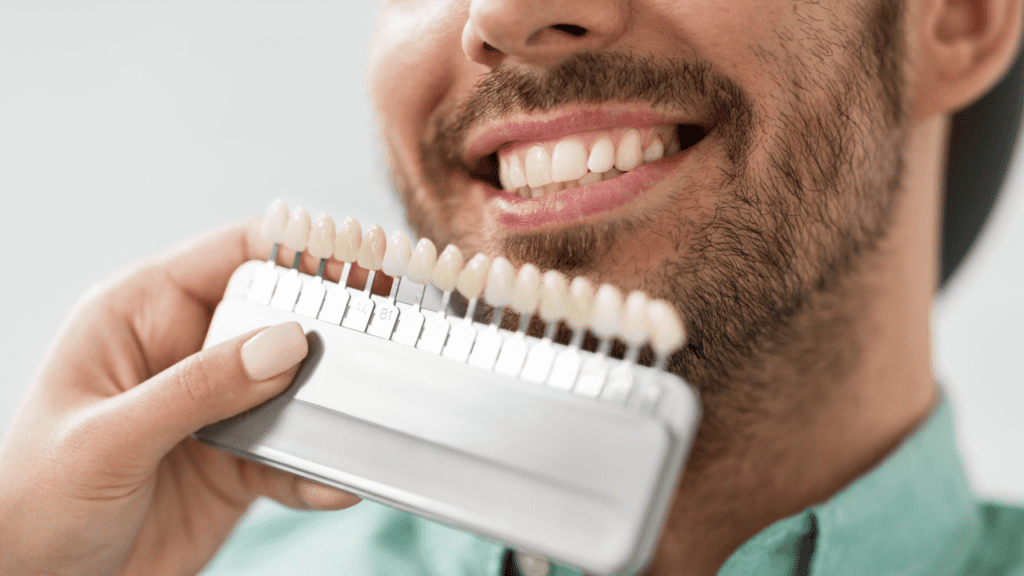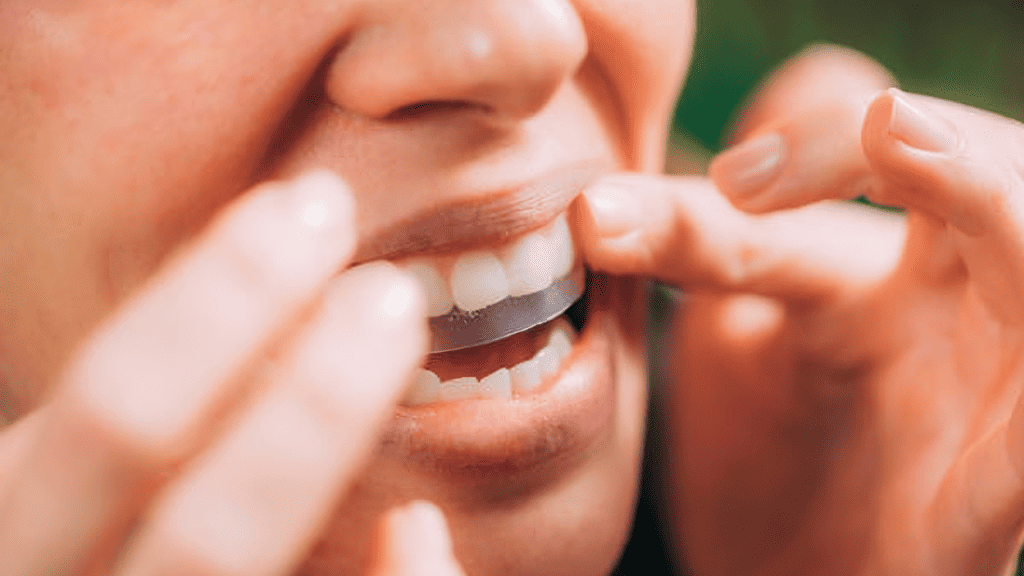You have probably seen people with perfect, white teeth and wondered how they achieved such flawless smiles. The answer could be teeth veneers! The use of veneers has increased dramatically in recent years, and it’s no wonder why. Veneers are a great way to achieve the look of perfect teeth without having to undergo extensive and expensive dental work.
What Are Veneers?
Veneers are a type of dental restoration that covers the front surface of your tooth. They can be made from different materials, but porcelain veneers are the most popular type. Veneers are usually used to improve the appearance of your teeth, but they can also be used to protect them from damage.
How Long Do Veneers Last
The duration that veneers last depends on many variables like how well you take care of them and the type of veneer material. Porcelain veneers can last over 20 years with proper care, while composite resin veneers usually only last about 5 to 7 years. Veneers composed of different materials have different lifespans because some are stronger and more durable than others.
The best way to extend the life of your veneers is to practice good oral hygiene habits. This means brushing at least twice daily, flossing daily, and using mouthwash. You should also avoid biting your nails, eating hard foods, and grinding your teeth. If you grind your teeth, ask your dentist about getting a night guard to protect your veneers.
The Difference Between Composite and Porcelain Veneers
Durability
Porcelain veneers are solid and durable. They are made of medical-grade ceramic, a very tough and rigid material. Composite veneers are made of a resin material that is less strong or durable than porcelain. Therefore, composite veneers are more likely to chip and crack than porcelain veneers.
Porcelain veneers are also more resistant to staining and discoloration than composite veneers. This is because porcelain is a non-porous material, which means that it does not absorb stains or discolorations like the resin material of composite veneers.
Time to install
Porcelain veneers generally take two visits to the dentist to complete. The first visit is when the tooth is prepared, and an impression is made or an intraoral scan is taken to send to the lab of the tooth. This impression is then sent off to a dental laboratory, where they will create your custom veneers. The veneers will be checked for fit and color on the second visit before being permanently bonded to your teeth.
Composite veneers can usually be done in just one visit as they are made directly in your mouth. Your dentist will first etch your teeth to roughen them up so the composite material will have something to adhere to. They will then apply the bond to chemically bond it, and composite material to your teeth and shape it into place. Once they are happy with the shape and color, they will cure the composite with a special LED light. This will harden the material and bond it to your teeth.
Aesthetics
Porcelain veneers are beautiful because they are translucent and show the natural color of your teeth. Composite veneers, on the other hand, are made from a mixture of plastic and glass. They are not as translucent as porcelain veneers and tend to have a more opaque appearance.
Affordability
Composite veneers are typically more affordable than porcelain veneers. This is because they are made of less expensive materials and require less time and labor.
Porcelain veneers are made of medical-grade ceramic, a more costly material. They also require more time and skill to create, as they must be custom-made to fit each patient’s teeth.
Why do composite veneers need to be replaced sooner?
Composite veneers are less durable and will show wear and tear sooner than their porcelain counterparts. They may also discolor over time due to staining from coffee, tea, or other dark-colored beverages.
They can start breaking and chipping at the edges, so they need to be replaced sooner.
Can veneers last your whole life?
No, it’s unlikely that your veneers will last your entire life. Although veneers are the strongest dental restoration available, they can’t withstand the force of a lifetime of biting and chewing. Over time, your veneers may begin to chip or crack and eventually need replacement.
Also, if your bite is off and you have not completed orthodontics if necessary can compromise the lifespan of the veneer. If your bite is not ideal, it can cause excess stress on the veneer and require more frequent repairs or replacements.
How often do veneers need replacing
Porcelain veneers can be replaced every 10 to 15 years if necessary. However, with proper care, they can last much longer. Taking good care of your veneers and practicing good oral hygiene can last 20 years or more.
Composite veneers, on the other hand, may only last for 5 to 7 years before they need to be replaced.
How To Make Your Veneers Last Longer
Brush twice a day
Just like your natural teeth, your veneers must be brushed twice daily to stay clean and free of plaque and bacteria build-up. Use a soft-bristled toothbrush and non-abrasive toothpaste, and brush gently in circular motions. You should also floss daily to remove any food particles, or debris stuck between your teeth. You can use a water flosser or an interdental brush to reach those hard-to-reach areas.
Regularly visit a dentist.
A visit to the dentist is important if you want your veneers to last. This is to ensure that your veneers are still in good shape and get a cleaning. If you have any concerns, your dentist can always take a look and see if anything needs to be done to keep your veneers looking their best. It can extend the lifespan of your veneers.
Avoid hard foods
Hard foods will damage your veneers and cause them to break. They can also cause your gums to recede, making your veneers look longer than they are. Stick to soft foods and chew with your back teeth to avoid damaging your veneers. Also, be careful with hard candy and ice cubes- they can crack your veneers if you bite them wrong.
Stop smoking
Smoking is one of the most common causes of tooth staining and discoloration. It can also lead to other serious oral health problems, such as gum disease and mouth cancer. If you smoke and want to keep your veneers looking their best, it’s important to quit. Talk to your doctor about ways to quit smoking, such as nicotine replacement therapy or prescription medications.
Don’t grind your teeth
If you tend to grind your teeth (bruxism), your veneers may only last for a short time. Teeth grinding can cause chips and cracks in the veneers. Therefore, if you think you may be grinding your teeth at night, talk to your dentist about getting a mouth guard.
Don’t use your teeth as tools
Your teeth are not meant to be used as tools. Avoid using them to open packages, bite your nails, or do anything else that can put undue pressure on them. This can cause the veneers to become loose and eventually fall off.
Do you still need to brush veneers?
Yes, you will still need to brush your veneers regularly to keep them clean. Just like natural teeth, veneers can accumulate plaque and tartar over time. It’s not necessary to brush them more forcefully than your natural teeth, but you will need to reach all surfaces of the veneers. A toothbrush with soft bristles should be used, and you can also use a special veneer cleaning solution if desired.
Are Veneers Worth it?
Yes, there are many benefits of getting veneers. Below are some of the reasons why people opt for veneers
Veneers look natural
Veneers look and feel natural and can be used to improve the appearance of your smile. They are made from thin pieces of porcelain bonded to your teeth’ front surfaces. This gives them a natural look that is resistant to staining and chipping. They also feel comfortable and look very natural.
Boosts your confidence
Veneers can give you the smile you’ve always wanted and help boost your confidence. If you’re unhappy with the appearance of your teeth, it can affect your self-esteem and make you feel self-conscious when smiling or talking to others. Veneers are a great way to improve the look of your teeth and give you the confidence to show off your smile. They can cover imperfections and make your teeth look straighter, whiter, and more uniform.
Veneers prevent teeth discoloration
Discoloration is a common problem that many people face. Teeth can become stained from coffee, tea, wine, smoking, certain medications, and even aging. While regular brushing and flossing can help to remove some surface stains, deep stains are often resistant to at-home care.
Veneers are an excellent solution for teeth that are difficult to whiten. They are also a good option for people who want to make a cosmetic change to their smile.
Veneers are stain-resistant and can help to brighten your smile. They can also correct misshapen, chipped, or broken teeth.
They are low maintenance.
Veneers are low maintenance. You don’t have to worry about them staining or discoloring over time as your natural teeth might. All you need to do is brush and floss regularly and see your dentist for routine cleanings.
How Much Do Veneers Cost?
The cost of veneers can vary depending on several factors, including the type of veneer, the number of veneers needed, and the dentist you choose. However, on average, veneers can cost anywhere from $500 to $2,000 per tooth. The costs will also depend on whether you get composite or porcelain veneers.
Can I Go Back To My Natural Teeth After Veneers?
If you’re considering veneers, you may wonder if you can ever return to your natural teeth. The answer is no! During preparation, your teeth will be slightly altered to accommodate the veneers. This means that if you ever decide to remove your veneers, your natural teeth will not be the same as they were before.
Your teeth become more sensitive after veneers because the enamel has been removed. This can make them more susceptible to cavities and tooth decay. If you decide to change or remove your veneers, you’ll still need a solution like a bonded composite veneer, a porcelain veneer, or a crown.
Who Is A Good Candidate For Veneers
People with stained, cracked, and chipped teeth
Veneers are excellent for people with stained, cracked, and chipped teeth. They can also close gaps between teeth or lengthen teeth that may have been shortened by wear. Veneers can completely change the shape, color, and size of your tooth. It is best sometimes to do veneers in pairs or more so it looks symmetrical and esthetic.
How Are Veneers Fitted
The process of having veneers fitted is usually straightforward.
1) An impression of the teeth is taken
The dentist will take an impression of your teeth to create a model.
2) Fabrication
The veneers will be custom made in a dental laboratory from the model of your teeth.
3) Teeth preparation
Before the veneers can be fitted, the surface of your teeth will need to be prepared. This usually involves lightly sanding down the enamel so the veneers can be bonded securely. The dentist also cleans the teeth and removes any debris.
4) Fitting the veneers
The dentist will then bond the veneers to your teeth using a special adhesive. An LED light may be used to harden the adhesive quickly.
5) Finishing touches
Once the veneers are in place, the dentist will check that they are in the right shape and color. They may need to be trimmed or shaped before being polished. The dentist may ask you to bite down on gauze to ensure the bite is comfortable.
You should be able to leave the dentist’s office with your new veneers in place. It is normal to experience some sensitivity to cold or hot drinks for a few days after having veneers fitted. This should improve within a week or two.
You should contact your dentist if you have any problems with your veneers, such as them becoming loose. They can assess whether the veneers need to be re-fitted or replaced.
Conclusion
Veneers are a popular choice for people who want to improve the appearance of their teeth. They are made from either composite or porcelain and can be used to cover up stains, chips, and cracks. Veneers are also a good choice for people who want to close gaps between their teeth or to lengthen teeth that may have been shortened by wear. The costs of veneers can vary depending on the type of veneer, the number of veneers needed, and the dentist you choose.
Related Articles
Prepping Your Teeth For Veneers: The Ultimate Guide
Marcus Ramsey has been a professional writer for over seven years. He has talked about and produced content for industries like Dentistry, Healthcare, and more.
Erica Anand is a certified dental expert. She holds a BA in Chemistry and a Doctorate of Dental Surgery from Stony Brook University. After completing a two-year pediatric dentistry program, she now runs a private practice focusing on preventive dentistry and is a member of the American Association of Dental Consultants.






